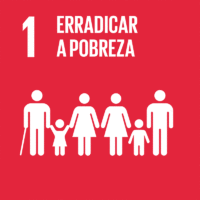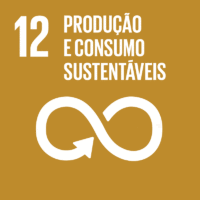Ciência_Iscte
Publicações
Descrição Detalhada da Publicação
Processes of normative regulation in spaces of “solidarity economy”: A comparative case study analysis
Título Revista
International Journal of Sociology and Social Policy
Ano (publicação definitiva)
2022
Língua
Inglês
País
Reino Unido
Mais Informação
Web of Science®
Scopus
Google Scholar
Esta publicação não está indexada no Overton
Abstract/Resumo
Purpose
This research article addresses the role of processes of normative regulation, driven by distinct approaches to collective action and underlying narratives of social change, in the construction of “solidarity economy” initiatives as parallel spatialities to that of the mainstream economy.
Design/methodology/approach
This article is based on a comparative case study analysis, informed by aspects of the Grounded Theory and Extended Case Study methods, of an ecovillage, an alternative commercialization network and an “integral cooperative”. The analysis is illustrated with fieldwork data on food production, commercialization and consumption, given its centrality in the construction of human livelihoods and lifeworld.
Findings
The resulting conceptual framework identifies three methodologies of normative regulation: Prefigurative social technologies and capitalizing upon power and reputation to exert influence over other economic actors; being part of a wider class-based emancipatory political project; mobilizing online peer-to-peer platforms and community currencies to construct an alternative institutionality.
Research limitations/implications
This article constitutes an exploratory analysis. Further research, based on the application of mixed methodologies to larger samples, will further expand the setup and applicability of these concepts.
Practical implications
This analysis will allow scholars and practitioners alike to gain a deeper understanding of how different approaches to collective action, based on distinct structural standpoints and narratives of change, constitute alternative economic spatialities to those of the mainstream economy.
Social implications
The comparative approach used in this article, as well as the resulting concepts, have the potential of contributing to the convergence of “solidarity economy” strategies between initiatives and movements with different approaches to collective action, therefore contributing to improve their capacity to exercise influence upon incumbent institutional regimes, as well as promote socio-economic change.
Originality/value
This article aims to bridge a significant gap in the understanding of how “solidarity economy”-based parallel spatialities emerge and coexist with the mainstream economy: It analyses how processes of normative regulation result from narratives of change with distinct approaches to collective action, based on the standpoint of actors located differently within structural power relations.
Agradecimentos/Acknowledgements
I would like to express my gratitude for the comments made on previous drafts of this article by Andreia Lemaitre, Florence Degrave and two anonymous reviewers.
Palavras-chave
Solidarity economy,Nature,Economic sociology,Labour,Class analysis,Normative regulation
Classificação Fields of Science and Technology
- Economia e Gestão - Ciências Sociais
- Sociologia - Ciências Sociais
Registos de financiamentos
| Referência de financiamento | Entidade Financiadora |
|---|---|
| SFRH/BPD/94495/2013 | Fundação para a Ciência e a Tecnologia |
| UID/CPO/03122/2013 | Fundação para a Ciência e a Tecnologia |
Contribuições para os Objetivos do Desenvolvimento Sustentável das Nações Unidas
Com o objetivo de aumentar a investigação direcionada para o cumprimento dos Objetivos do Desenvolvimento Sustentável para 2030 das Nações Unidas, é disponibilizada no Ciência_Iscte a possibilidade de associação, quando aplicável, dos artigos científicos aos Objetivos do Desenvolvimento Sustentável. Estes são os Objetivos do Desenvolvimento Sustentável identificados pelo(s) autor(es) para esta publicação. Para uma informação detalhada dos Objetivos do Desenvolvimento Sustentável, clique aqui.

 English
English




